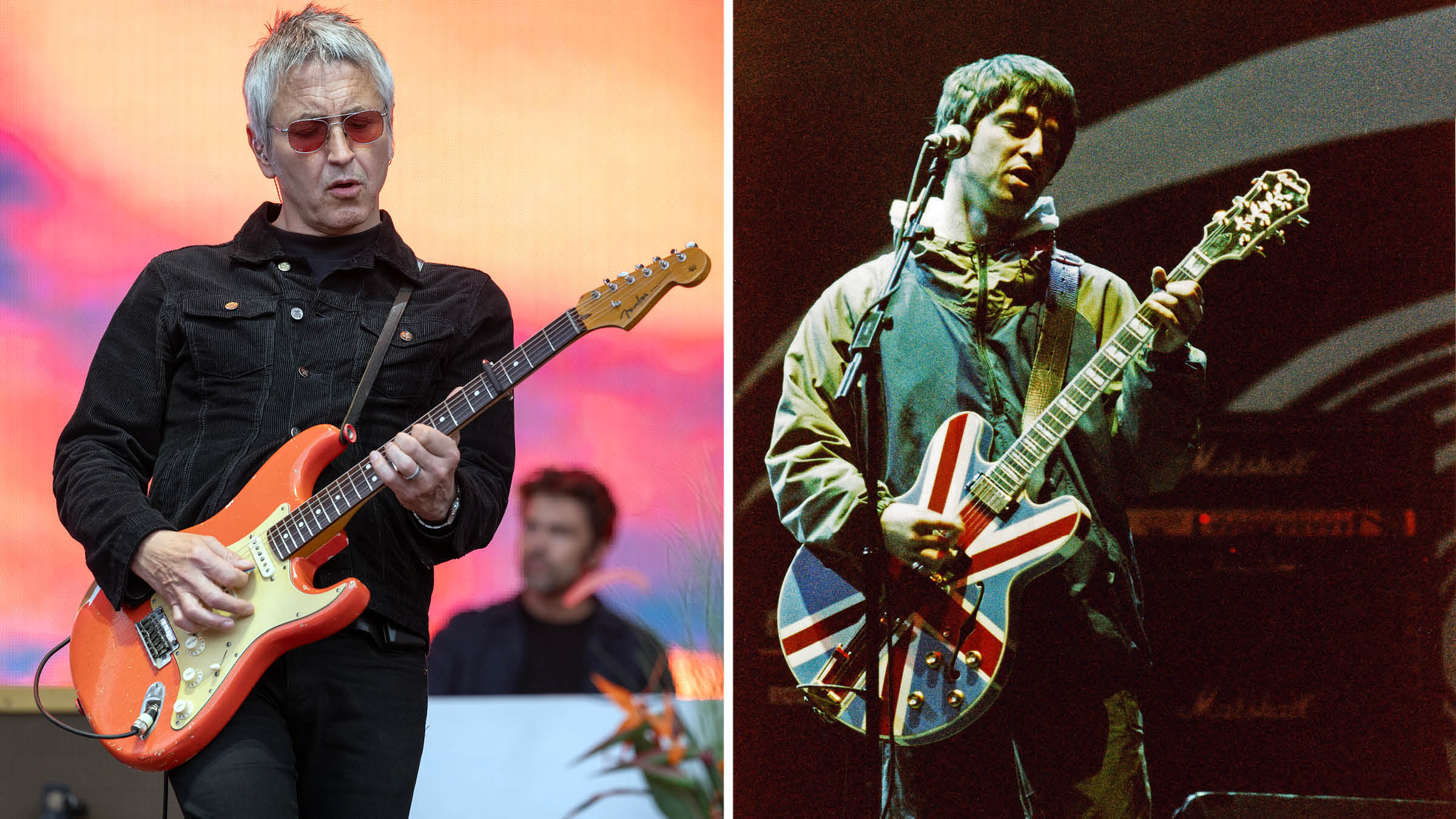Highly Suspect: "Basically every guitar we use onstage is something we've built!"
Guitarist Johnny Stevens and bassist Rich Meyer contemplate going electronic, custom guitar builds and bringing up the bass
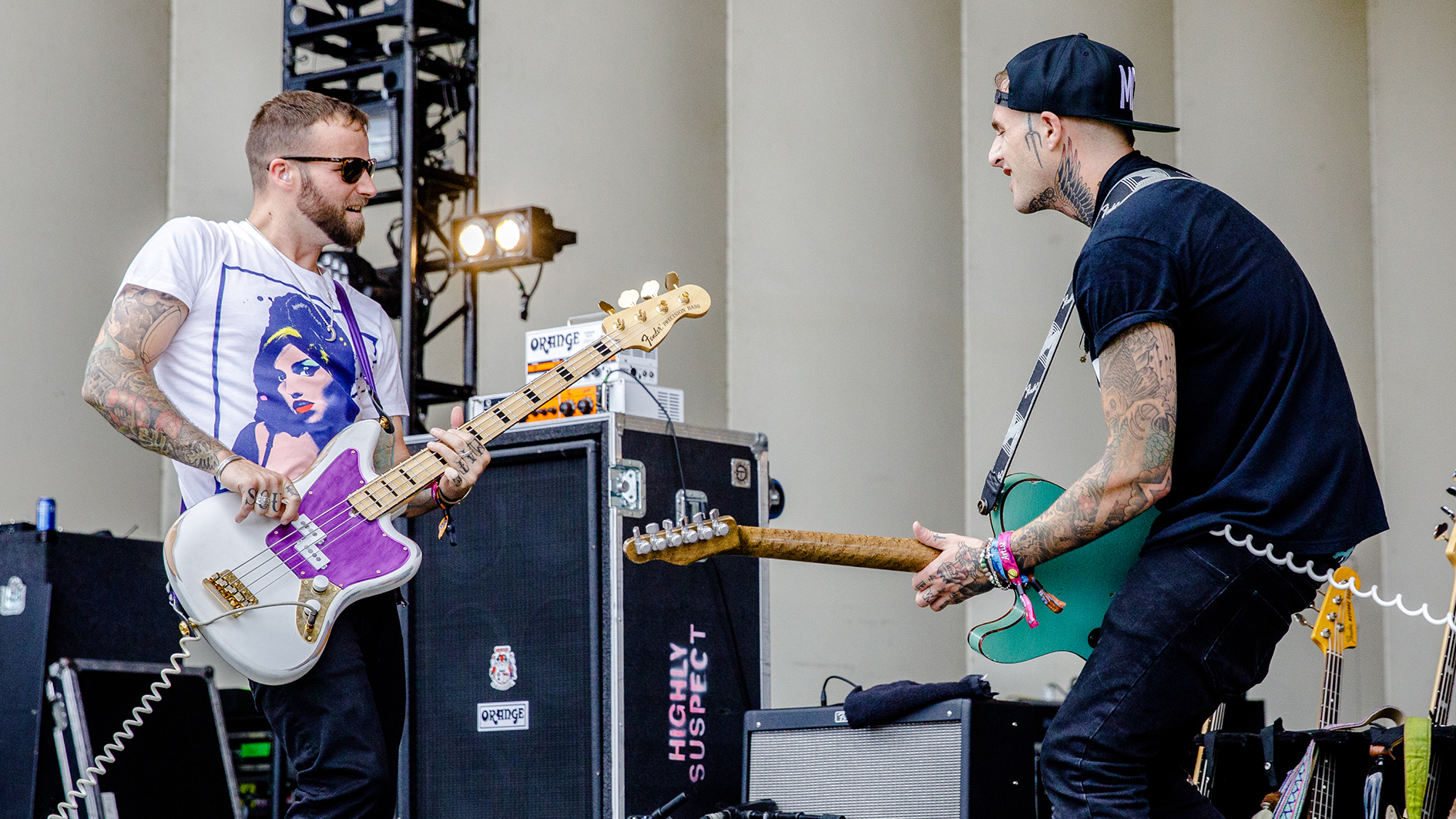
After a decade of near-constant moving, Highly Suspect find themselves, in step with the rest of the world, on enforced pause. Guitarist/vocalist Johnny Stevens and bassist Rich Meyer are both at home, enjoying the break they’ve been given - despite the obvious downsides - due to lockdowns in their respective home cities of New York and LA.
It’s a good point then to take stock and reflect on a history that has taken them from Cape Cod covers act and local heroes to international crossover success as a genre-bending rock group responsible for hits like Lydia and My Name Is Human. The enduring friendship - between the motormouthed Johnny and considerably more laidback Rich - has always been at the core of that journey.
“We met at a party in about 2004/5,” recalls Rich when we ask about the origins of their longstanding friendship. “We were both on motorcycles and we both had acoustic guitars, which is funny because most people don't ride around on motorcycles with acoustic guitars on their backs, you know?”
“I felt like he had my whole shtick!” adds Johnny. “I was like, ‘Who the fuck is this guy!?’ But then we whipped out our acoustics, with our weird fucking chin strap beards, and started playing. By the end of that night we actually become best friends. Then Rich’s brother Ryan [Highly Suspect’s drummer] came over to me and was like: ‘Yeah, stop doing so much cocaine!’”
What follows is a characteristically erratic and expletive-laden conversation on the band’s bass bias, selected bruisings and the advantages of Rich’s sideline as a luthier, with his Venice Guitars brand.
When did you get your first guitar?
Johnny: “My first instrument was the piano. My dad always played piano and he was a teacher for a while, but I couldn't stand when my dad was telling me how to do shit. I resented it, I really did: to this day! I think I was maybe 10 when I first got a nice guitar, an Ibanez.
All the latest guitar news, interviews, lessons, reviews, deals and more, direct to your inbox!
"We always had instruments, though. That was the one thing that my dad encouraged. We don’t really get along, but anytime I was playing music as a kid, he would never tell me to stop.”
Rich: “I played the drums for a couple of years non-stop and I was driving my parents crazy, so my dad said, ‘Hey you wanna learn some guitar?’ so my dad taught me some acoustic chords and basic strumming patterns and I made the switch rather suddenly. I was about 14 or something and all of a sudden instead of in the basement playing drums after school for hours, I was up on my bed playing acoustic.”
When do you feel that you made your first big breakthroughs as musicians within the band setting?
I was about 14 or something and all of a sudden instead of in the basement playing drums after school for hours, I was up on my bed playing acoustic
Rich Meyer
Johnny: “I think for me, Rich, it was that first time we played that Weezer song, Say It Ain’t So. That was the first time playing with Lelu, our electric guitar. We did that battle of the bands for [Cape Cod rock station] Pixy 103 and started going over to ‘electric world’. Whereas, originally, we were doing acoustic sets at bars, so that was a defining moment for me. I was looking over at Rich and thinking, ‘Oh shit! We can be powerful now!’”
Rich: “For me, it was when I decided I was going to play the bass. Originally, I was a guitar player in the band and there was a bass laying around, but I used it when we did this Bob Marley tune and it felt like, ‘Wow, this is so much easier and more fun for me!’ And it sounded really good. I would always crank the bass on the stereo, but I always played the drums or guitar. So I realized [then] that playing the bass was where I belonged.”
It’s often that shift, between being a listener to a player, where most of us realize how important the bass is…
Johnny: “It's so important. Even now, when we're mixing and mastering shit, no matter who are engineers are, we’re constantly saying, ‘Bring up that shit!’ I listen to a lot of hip hop, I love subs, I love that feeling of getting hit in the chest. I'm always saying, ‘Get that bass up, turn that guitar down!’ We want it to be booming.”
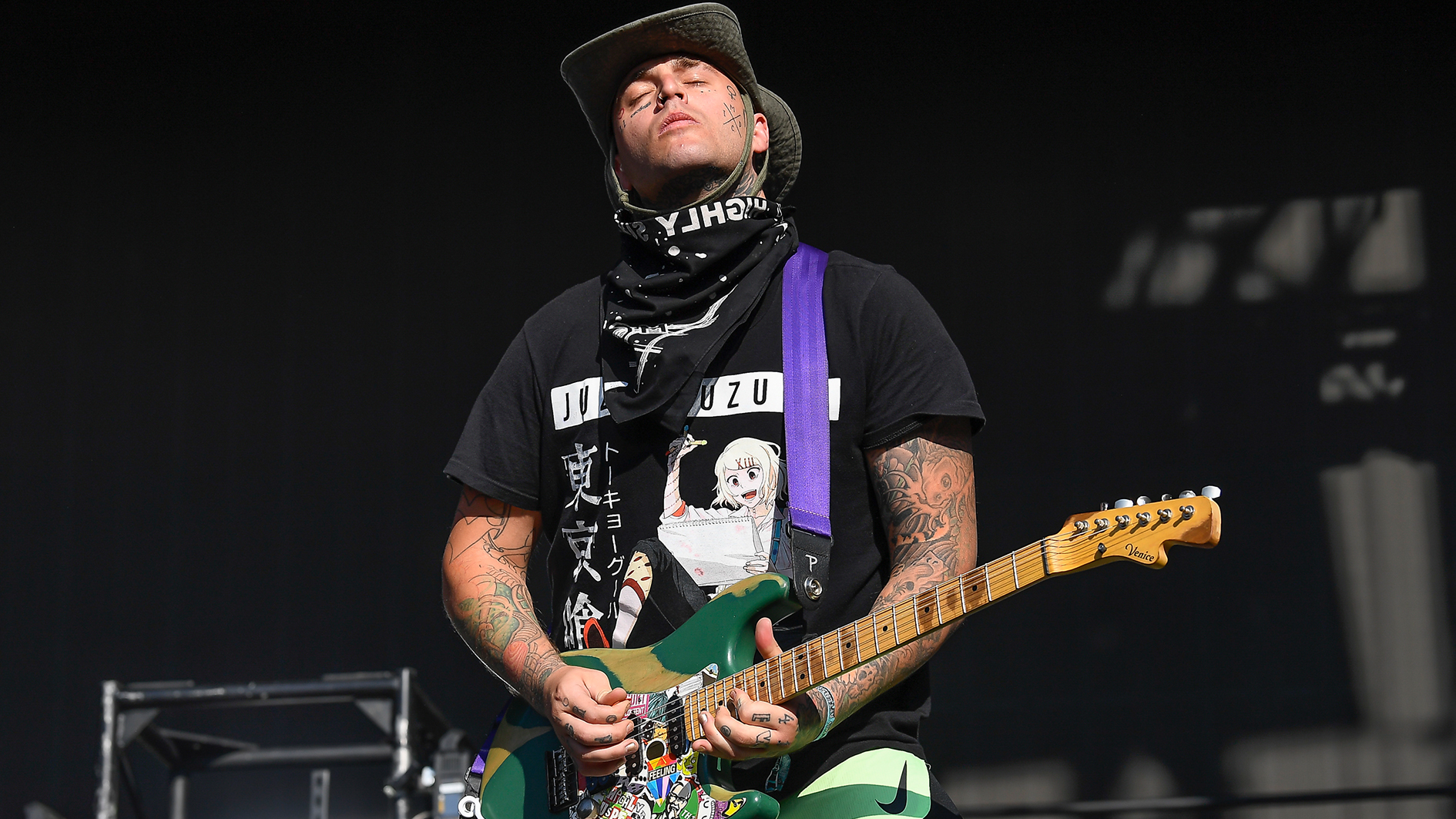
The world’s ears are now conditioned to hip hop, to EDM, to really bass-heavy stuff, too. A lot of bands don’t consider that their music is going to be placed alongside that.
Johnny: “Exactly. Over the last few years, we've been learning to use Ableton and synthesizers and different DAWs and incorporate that into our music. We're so behind on that [in rock music] and it's interesting because people give us shit and say, ‘You're not a rock band anymore!’ I'm like, ‘Well, fuck you! Maybe we're not.’ Linkin Park was doing this shit 20 years ago, so I don't know what the big issue is.
"Some purists out there just want to hear that tinny classic rock, constantly. We love that, too, but we're not going to stop expanding to make as many things as we possibly can. That's the whole goal… No disrespect to people that are like ‘hardcore rock’, but I just think it's close-minded.”
Electronic elements aside, how else are you pushing yourself to ‘make things’?
We’re very blue collar kids. Rich, in particular, has always been a woodworker and now he builds the best fucking guitars
Johnny Stevens
Johnny: “Well I also think an interesting thing to talk about at this point is that we do have construction backgrounds. We’re very blue collar kids and Rich, in particular, has always been a woodworker, so he’s built furniture, our lofts [the trio split their first shared studio apartment in Brooklyn, thanks to some handy DIY skills] and now he builds the best fucking guitars.
"Everyone's always asking me what guitar I play and I play only guitars that Rich builds. I shit you not!”
How would you describe the character of the instruments you’re making?
Rich: “I definitely do a lot of Fender-style stuff, but some people say that I have a Rickenbacker vibe. It's totally non-intentional, but it just seems to be what's happening right now. [Ultimately,] you want it to play right, you want it to sound good and you want it to feel good, but let's be real: it also has to look cool.”
Johnny: “His semi-hollows have these great cut-out designs. Like, Rich made a guitar for Jesse Hughes from The Eagles Of Death Metal and it's got lightning bolt cut-outs, as a nod to Boots Electric, one of his alter egos.
"Then he did one for me with sword cutouts, like the one I have [tattooed] on my face and it’s all hot pink. And he made one for our buddy in Slothrust who loves to cook and he made this soup ladle cut-out, which was really cool.”
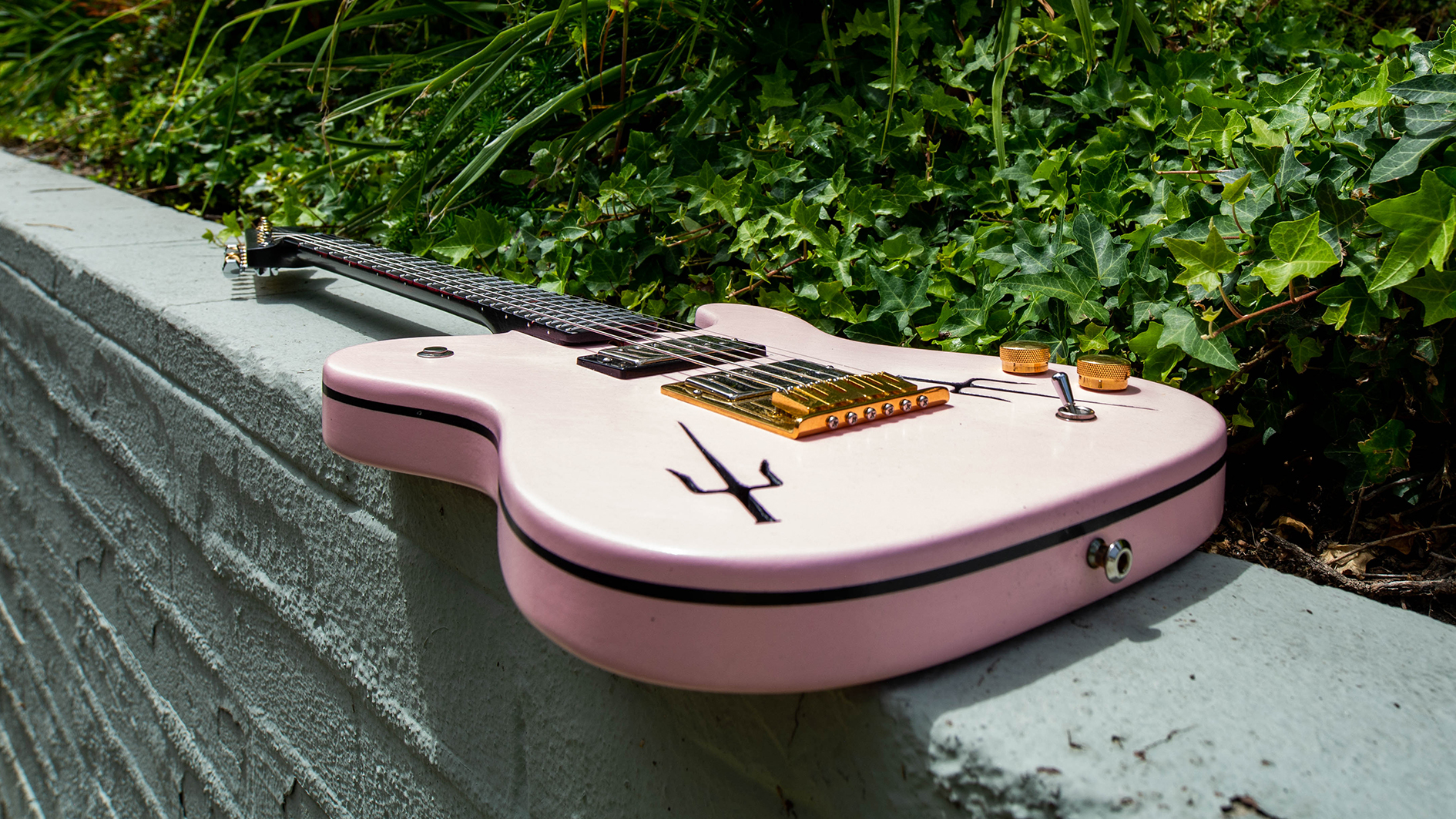
You’re spoiled for choice with Rich’s builds, but do you have a favorite?
Johnny: “I like the green Strat the best. He didn't make that specifically for me but I was like, ‘Please let me have that.’ And he did! I’m minimalistic in that I don't like going on the road with a bunch of different guitars [in different tunings].
"When Rich is making stuff for me, I'm like, ‘Please make a Strat.’ That's usually all I want to feel, but his actually has a better balance for me than a Fender does. I feel like it's not even there, which is what I want, because I'm old and I don't want to have a fucking hunchback."
Rich: “We call it the trash guitar…”
Johnny: “I just call it ‘my guitar’ or ‘Greeny’. But most of our guitars have names. There’s Battlefat, there’s Lelu…”
What kind of guitars are Lelu and Battlefat?
Battlefat is a yellow Mexican Fender Strat that says ‘Elvis fucked Marilyn’ on the bottom
Johnny Stevens
Johnny: “Lelu is a Mexican Fender Stratocaster, which my father bought me and it was like the last nice thing he ever gave me. It was the first electric guitar that we used in Highly Suspect shows. It’s been out of commission for a while, but Rich fixed it up and got it working good. The only reason I don't use it it's because it's fucking heavy and I like Rich’s builds better.”
Rich: “It’s a good studio guitar because it has so much sustain. You wouldn't want to be on stage holding that, but sitting in a chair playing some stuff? It's ideal.”
Johnny: “Then Battlefat is a yellow Mexican Fender Strat. It says on the bottom of it ‘Elvis fucked Marilyn’ and it's in a lot of pictures. That was pretty much the main guitar I used throughout Mister Asylum, the debut album and it’s special to me because it was Rich’s guitar. He gave it to me on my birthday and I cried! I think I was like 23/24.”
Rich: “And you sliced your hand open on a broken mirror by accident!”
Johnny: “Yep, I was really excited and I jumped off our kitchen counter into one of our lofts. I missed really badly, grabbed onto a mirror and sliced my middle finger all the way down, wide open. Luckily, there was an ex-army medic living down the hall, who came over and stitched me up on the spot, while we were drinking. It was a hell of a night!”
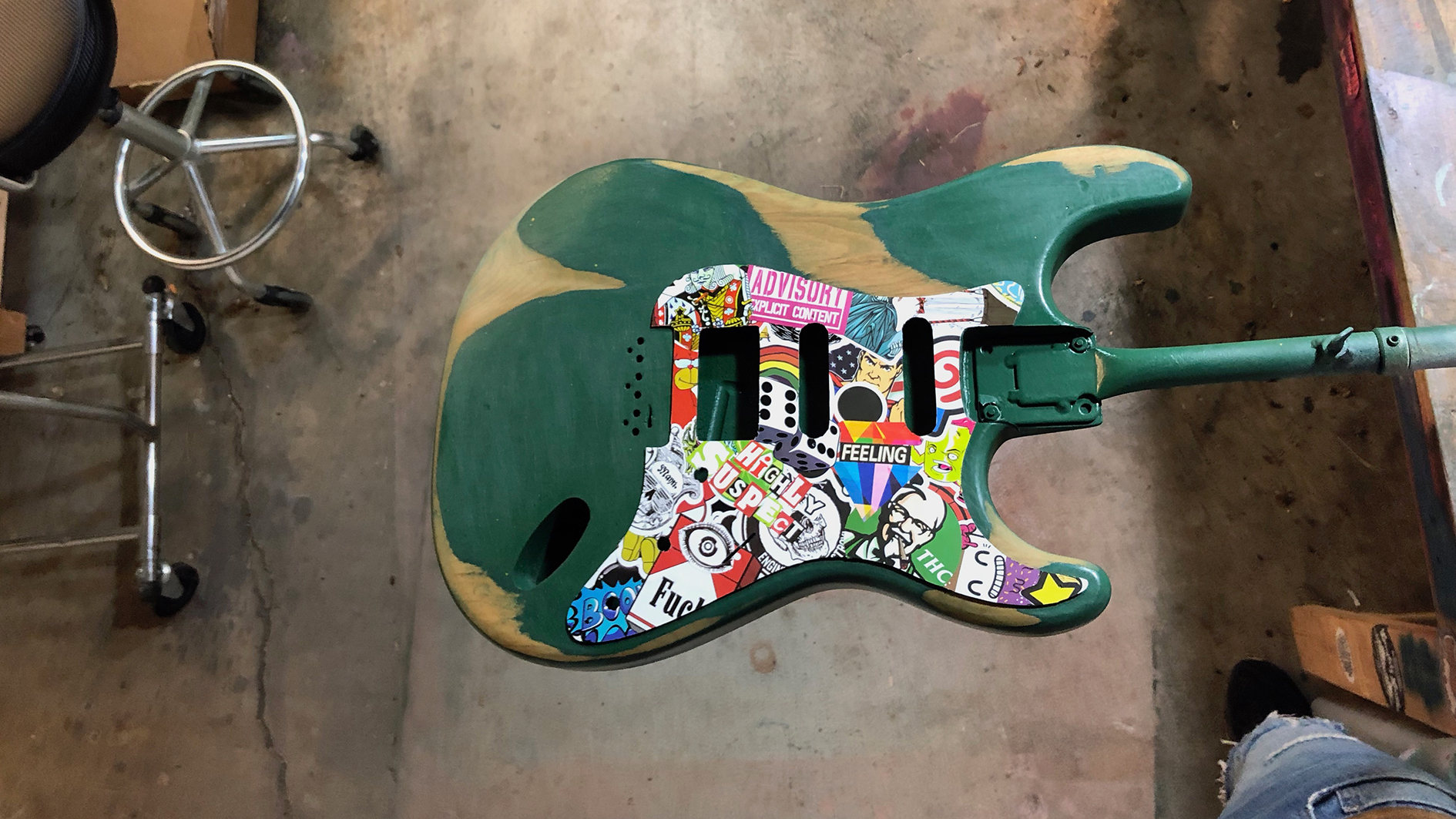
What else is in your live rigs?
Johnny: “[For amps] I use a Supro Thunderbolt 15 reissue, mixed with a Fender Hot Rod Deluxe. I find I get a really good clean tone out of the Fender and some attitude out of the Supro and together they create this thick, chorus effect.
"Then [for pedals] I’ve got the Boss Blues Driver, the Boss Phase Shifter and the Eventide H9. I only use it for one sound - you can hear it on Wolves, you can hear it on Loft. It’s like this seagull sound. Then I’m using an Earthquaker Devices Ghost Echo [reverb] and a couple of others. But I’m pretty basic.”
Rich: “I really like Ampeg 8x10 cabinets and SVT amps, you can’t beat that. It’s the industry standard, but I always like to put the Svetlana tubes in the amp. I think it makes a huge difference. When it breaks up, you still maintain definition in the mid range, which is super important to me. Those Russian tubes seem to maintain the same EQ.”
People give us shit and say, ‘You're not a rock band anymore!’ I'm like, ‘Fuck you! Maybe we're not.'
Johnny Stevens
Johnny: “What you’re trying to say is that you’re a communist.”
Rich: [Laughs] “I also use the Fender Hot Rod Deville with the 12” speakers, as like a pedal to fatten up the sound. I’ll use the Boss Bass Driver and the Earthquaker Devices Dunes. I love those pedals.
"It’s hard to find a distortion pedal that maintains bass, a lot of times they’ll lose the low-end, even with the pedals that are made for bass, so those two are my favorites.
“Then basically every guitar we use onstage is something I’ve built. I like a P-Bass shape. I’m definitely in the process of trying to make something better than the P-Bass, but err, I’ve not figured that one out yet, you know?”
What, amid all the uncertainty, are your hopes for the future at the moment?
Johnny: “World domination. I can’t talk about it too much right now, but I’m dead serious, I mean Rich knows…”
Rich: “Well, I am the communist…”
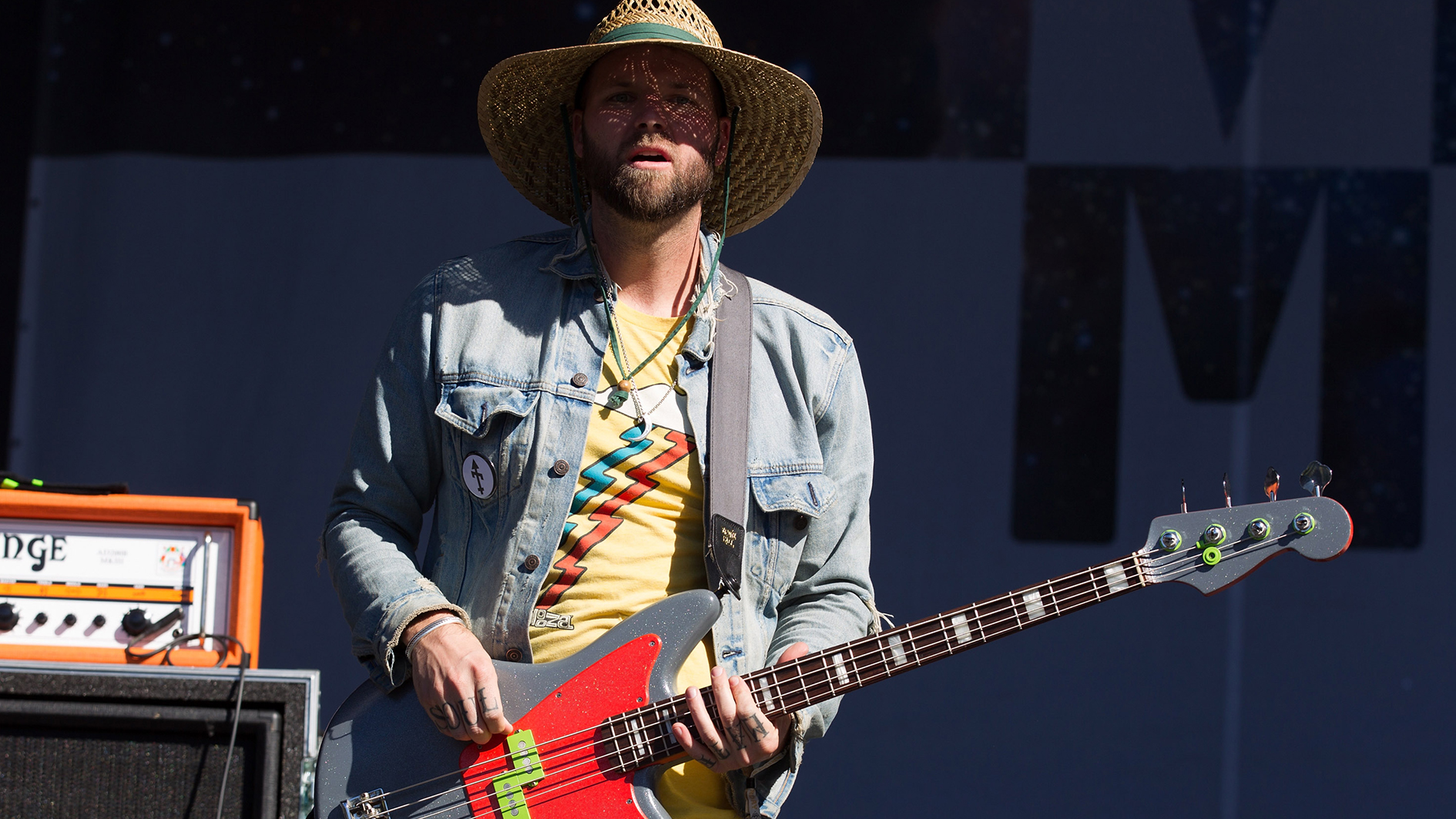
Johnny: “Yeah, he’s been going through my emails. But I’ve got some things in the works that are going to be really cool. But as far as Highly Suspect goes, we have been doing this for a decade now, professionally, and even longer as friends. We’ve gone through extreme highs, we’ve gone through extreme points of poverty, of having money…”
Rich: “Extreme points.”
Johnny: “Yeah. And what the fuck else are we going to do, at this point? For Highly Suspect, you can expect us to continue pushing boundaries, to continue making albums and touring live and, I guess now, digitally as well.”
Rich: “It’s tough to predict, honestly. Shit is crazy right now, but we’re going to make the best of it, however we do it.”

Matt is Deputy Editor for GuitarWorld.com. Before that he spent 10 years as a freelance music journalist, interviewing artists for the likes of Total Guitar, Guitarist, Guitar World, MusicRadar, NME.com, DJ Mag and Electronic Sound. In 2020, he launched CreativeMoney.co.uk, which aims to share the ideas that make creative lifestyles more sustainable. He plays guitar, but should not be allowed near your delay pedals.
